STUDY IN CANADA
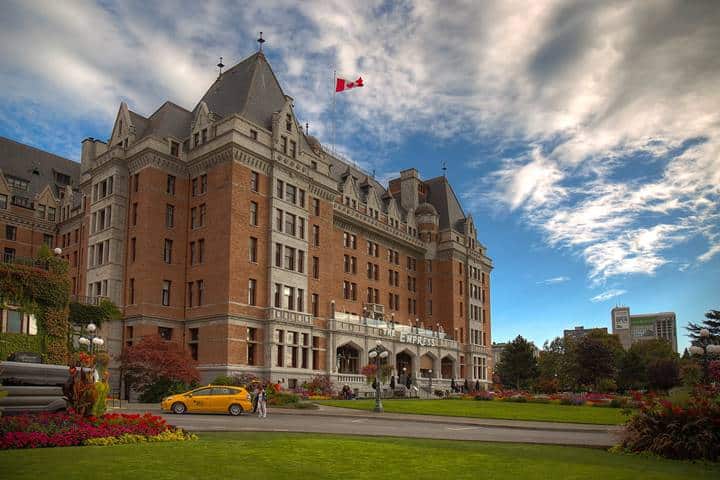
Canada has become a popular destination for higher studies among international students. With more and more students are considering Abroad for their higher studies Canada is one of the best picks among them.
Be it ease of communication or the simplified education system followed in Canada, or the relatively low cost of living – all of these makes Canada as one of the premier destinations for prospective international students.
Apart from these perks, Canada, as a country also makes it to the list of one of the best destinations to study abroad. The diversified culture and the cosmopolitan environment is a treat for the young explorers out there.
With a total of approximately 120,000 international students coming to Canada every year, it gives you the opportunity to live in a multicultural environment contributing a lot to your personal development.
One of the most significant and most important concerns for college students getting ready to start out for there masters is the issue of safety. This is especially true for international students getting out of the home country, and might not be aware of the culture and issues of safety of the country within which they’re aiming to study.
As per the report by CBIE.CA study in Canada is one of the safest options in the world, with a low crime rate, Transportation Safety, Apartment Safety, and a helpful Police department.
Apart from above-mentioned points, Canada has a high quality of life and the people here are super amiable. In terms of social progress and development, according to Global News, Canada was ranked second in the world with the highest quality of life!
Cost of Living

Canada has a relatively low cost of living when compared to the States or European countries. Although the cost of living in Canada varies dramatically depending on the city and province.
The generalized living expense for international students is enumerated below.
Rent and residential costs are the most substantial aspect in determining the cost of living in Canada. The average rental cost for modest student accommodation will range around CAD $1000-$1500.
Apart from the basic rent, you are most likely to spend $90 on basic amenities such as gas, electricity, water etc on a monthly basis.
Students who are planning to study in Canada can save up on accommodation expenses by sharing flats or applying for university accommodation.
Living expense in terms of food and groceries are quite reasonable but not precisely cheap when eating outside in a restaurant or a bar. An everyday meal might range from CAD $15-$115 while a beer might cost you $5- $7 depending upon your choice of restaurant.
Apart from this, the cost of living might include the expense of clothing, entertainment, medical requirements or any miscellaneous expenses.
Here is a breakdown of the monthly expenditure of a typical student living in Toronto (excluding the accommodation) :
- Eating Out: CA$15
- Local Public Transport (One-Way): CA$3.10
- Bread: CA$2.76
- Movie Ticket: CA$13
- Health Insurance (Compulsory): CA$600
Visa and Immigration

If you wish to study in Canada, you will need a Canadian Study permit which serves as a student visa as long as you stay in the country. The application for a study permit is available both online and offline on the official website of Citizen and Immigration Canada. (CIC) .
The process of acquiring a study permit abroad might be cumbersome if not done meticulously.
In order to attain a student Visa in Canada, you must have the requisite on the following points:
- You must be 18 years or older.
- You must have continuously studied in Canada for at least 8 months long, full time.
- A document from your school is required that states that you have passed all your program requirements.
- You must have a valid study permit.
- You must apply for a work visa within 90 days of completion of your program.
- You must have graduated from public post-secondary school, such as a college, trade/technical school or university, or CEGEP in Quebec or/private post-secondary school that operates under the same rules as public schools (currently applies only to certain private post-secondary institutions in Quebec) or/private secondary or post-secondary school (in Quebec) that offers qualifying programs of 900 hours or longer, leading to a diplôme d’études professionnelles (DEP) or an attestation de spécialisation Professionnelle (ASP) or/ Canadian private school that can legally award degrees under provincial law (for example, Bachelors, Masters or Doctorate degree) but only if you are enrolled in study programs leading to a degree as authorized by the province
Working while studying in Canada
There are a lot of opportunities for international students who wish to work while studying. One can work on campus, off campus or also enroll in a Co-op or internship program.
- If you are a student and have a valid study permit, you are eligible to work On-Campus.
- Not only this, you do not need a separate work permit visa to work off campus! The study permit visa is very much eligible to and legally enough to allow students work off-campus.
- Being a full time student you are allowed to work off campus for up to 20 hours per week during a regular academic session and full time during regularly scheduled breaks
- You can work off campus immediately after reaching Canada rather than waiting six months as per earlier rules
Working after study in Canada
The country’s policy towards offering work opportunities to its international students is often one of the most important reasons for a student to choose it to pursue higher education. In order to work in Canada after completing your studies, all you need is a PGWP i.e Post Graduate Work Permit.
A PGWP is a document that allows international students who have completed an education degree from a participating Canadian post-secondary institution to be able to work after study in Canada.
The PGWP is beneficial to candidates who want more time to look for suitable employment and is also the first step to take for candidates who want to ultimately acquire Canadian citizenship. It allows the candidate to work for a period of time varying from eight months to a maximum of three years.
In order to be eligible for a work permit, the student must:
- be at least 18 years of age when applying
- have pursued a full-time program of study in Canada (for at least eight months)
- have graduated from a Public post-secondary school such as a trade/technical school, university or college. The private secondary or post-secondary school must offer programs of duration 900 hours or longer for the professional diploma or should be a private Canadian institution which can legally award degrees
- apply for the PGWP within 90 days of completion of the educational program
- have a valid study permit while applying for the PGWP
The application to apply for PGWP is available both offline and online against a non-refundable application fee of CAD $255.
Top 5 universities to study in Canada
University of Toronto
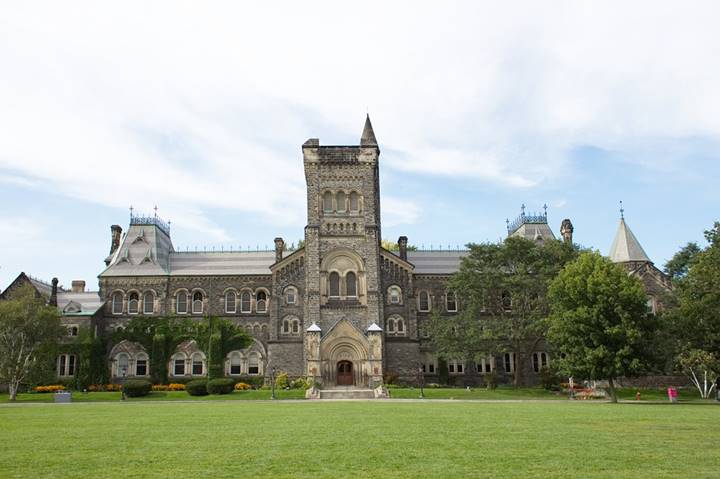
The University of Toronto dethroned the prestigious McGill university consequently topping the list of top universities in Canada for the second consecutive year. The QS ranking has placed the University of Toronto at the 31st spot in the list of world rankings.
Established in 1827, this university has around 88,700 students in its three campuses across Toronto.
The University of Toronto has been maintaining its name in the area of biological research and innovation, for a long time now, having been, credited with the discovery of insulin and Stem cells.
McGill University
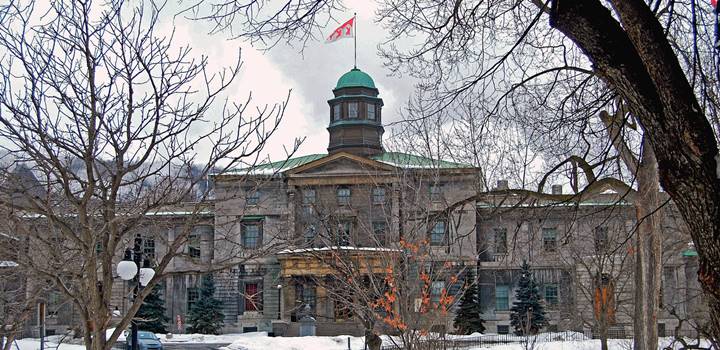
McGill is a top state university and comes just after the University of Toronto in the QS world ranking at 32.
It is the second best university in Canada with 40,500 students. What makes McGill one of the top universities is its amiability towards international students.
With 25% international student population making Mcgill the top choice for international students.
Located in Montreal, the university boasts the highest number of Rhodes Scholars (142) and Nobel Prize winners (12) among all Canadian universities which are evident from its outstanding research opportunities.
University of British Columbia
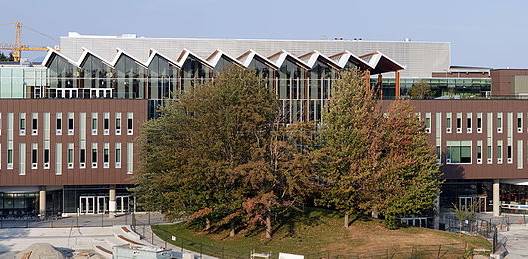
UBC is third-highest ranked universities in Canada. It is one of the most popular universities amongst Indian students with a population of 62,900 students out of which 14,500 are international students from across 162 countries.
The university is located in Vancouver and Kelowna in British Columbia and is recognized for its multicultural environment. UBC provides a stellar education in the field of Sciences and has a vast scope for international students.
University of Alberta

The University of Alberta was founded in 1908 and is placed at the 90th position in terms of world rankings.
It is based in the beautiful city of Edmonton and has a student population of 37,400.
The University of Alberta is one of Canada’s top universities and among the world’s leading public research-intensive universities, with a reputation for excellence across the humanities, sciences, creative arts, business, engineering, and health sciences.
It offers up to 400 graduate, undergraduate and professional programs in 18 facilities and is home to the world’s leading facilities such as Canada’s National Institute for Nanotechnology and Li Shing’s Institute for virology.
University De Montreal
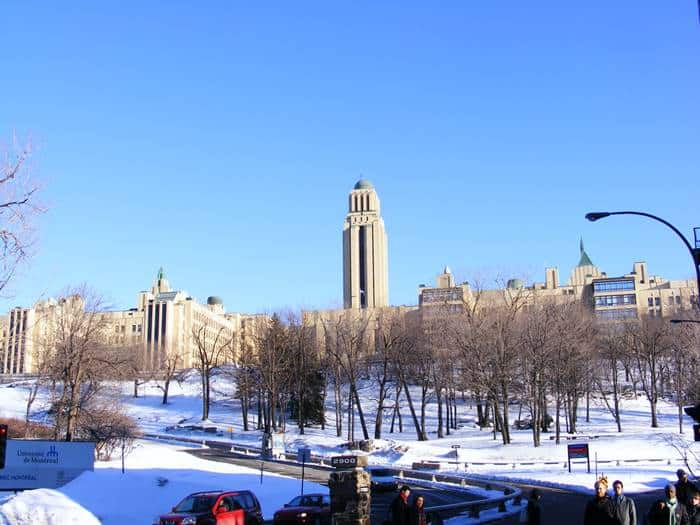
The University of Montreal is the only francophone university that makes it to the list of top 100 universities in the world at the 90th place. It has a large student body with around 41,000 students enrolled which share a quarter of international students. Many renowned business leaders are graduates of the university, including Louis R. Chênevert, chief executive officer of the United Technologies Corporation. Other graduates are noted for their contributions to scientific research, including innovations in nuclear power, visual perception, and quantum cryptography.
The university was established in 1878 and is one of the most active Canadian universities in research, with research revenue of more than half a billion dollars.
Conclusion
Going off to a university might be an adventure to embark upon your adult life but attending a Canadian university might be another kind of experience and one of the best decisions you would be making so far!
Recently, Canada has become a top destination for students planning to study abroad. With affordable tuition fees, high quality of life, easy immigration policies- the number of international students in Canada is increasing rapidly.
The Canadian government is generous in providing scholarships to international students which again is a big attraction when planning to study abroad. High
employment rate and an option to acquire a permanent residency in Canada are some of the exclusive perks of the country.